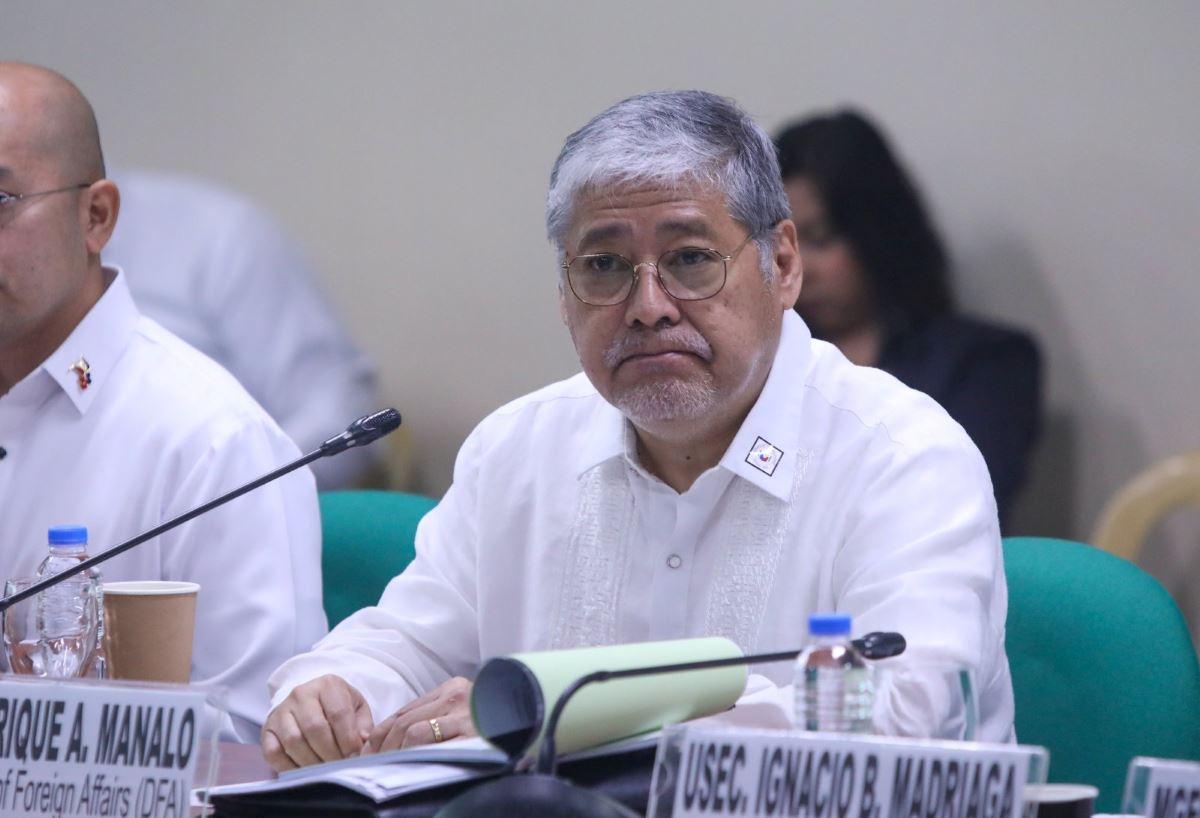DFA’s Manalo urges China: Stop harassing us
Foreign Affairs Secretary Enrique Manalo on Monday said that the Philippines wants to solve maritime disputes with China peacefully — but delivered a simple message to Beijing: “stop harassing us.” Speaking on the sidelines of an ASEAN-Australia summit in Melbourne, Manalo defended his government’s policy of publicizing Chinese maneuvers in contested maritime territory — including […]


Foreign Affairs Secretary Enrique Manalo on Monday said that the Philippines wants to solve maritime disputes with China peacefully — but delivered a simple message to Beijing: “stop harassing us.”
Speaking on the sidelines of an ASEAN-Australia summit in Melbourne, Manalo defended his government’s policy of publicizing Chinese maneuvers in contested maritime territory — including the recent passage of warships near Scarborough Shoal, also called Panatag Shoal and Bajo de Masinloc.
“It’s merely trying to inform the people of what’s going on,” Manolo said. “And some countries or one country at least has some difficulty with that.”
“But our simple explanation is if you would stop harassing us and, and perhaps performing other actions, there wouldn’t be any news to report.”
Mixed results
China claims almost the entire South China Sea as its territory, brushing aside claims from a host of Southeast Asian nations.
Scarborough Shoal — a triangular chain of reefs and rocks in the disputed South China Sea — has been a flashpoint between the countries since China seized it from the Philippines in 2012.
Philippine governments have tried to rally international and regional support to their cause — with mixed results.
“The Philippines is committed to a peaceful resolution of disputes through diplomatic means, or peaceful means,” Manalo said, while insisting “this will not be done at the expense of our national interest.”
“We are reaching out to partners in like-minded countries with similar issues and similar concerns.”
But Manalo acknowledged there were was at least a small question mark over support from the Philippines’ most important security partner — the United States.
The two countries are treaty allies, meaning Washington has formally pledged to come to Manila’s defense in the event of a military conflict.
Ask about the November election — which will pit incumbent Joe Biden against Republican firebrand Donal Trump, he said it was a topic of frequent debate behind closed doors.
“Every country in the world is probably thinking of that, of course. The United States is a major, it’s a treaty ally of the Philippines. So obviously, any differences or changes in US policy from existing policies would most likely have some kind of effect.”
“At this stage it’s fairly difficult to assess how it would happen, or what would happen,” he said.
“But all I can say is we are, of course, carefully monitoring the election season in the United States, but I’ve had talks with many of my other colleagues from other countries, and I think everybody is doing the same.”
“So certainly all eyes will be riveted on that election this year.”
‘Worrisome’
On Wednesday, President Ferdinand ”Bongbong” Marcos Jr. described as “worrisome” the recent developments in the West Philippine Sea (WPS), including the presence of the Chinese navy and interference on the electronic communication capabilities of Philippine vessels.
advertisement
“It’s worrisome because there are two elements to that: one is that the — dati Coast Guard lang ng China ang gumagalaw doon sa area natin. Ngayon, may Navy na sumama pa mga fishing boat,” Marcos said when asked about his thoughts on recent developments in the West Philippine Sea.
“So, nagbabago ang sitwasyon, but – well, maliwanag naman para sa atin, we don’t really – we just watch, of course, what everybody is doing, but really for us, patuloy pa rin natin, we just defend our maritime territory,” he added.
For its part, Chinese foreign affairs ministry spokesperson Mao Ning maintained that it will keep on taking actions to protect its “territorial sovereignty and maritime rights and interests.”
“China’s position on the South China Sea is consistent and clear. We express grave concern over the Philippines’ recent activities in the South China Sea that infringe on China’s sovereignty and will continue to take necessary measures to firmly safeguard our territorial sovereignty and maritime rights and interests, and keep the South China Sea peaceful and stable,” she said.
Tensions
Tensions between China and the Philippines have heightened in recent months as both sides traded accusations over a series of incidents in the West Philippine Sea.
China claims almost the entire South China Sea, a conduit for more than $3 trillion in annual ship commerce. Its territorial claims overlap with those of the Philippines, Vietnam, Malaysia, and Brunei.
Parts of the waters within the Philippines’ exclusive economic zone have been renamed the West Philippine Sea.
In 2016, an international arbitration tribunal in the Hague said China’s claims had no legal basis, a decision Beijing has rejected. — Agence France-Presse/RSJ, GMA Integrated News














